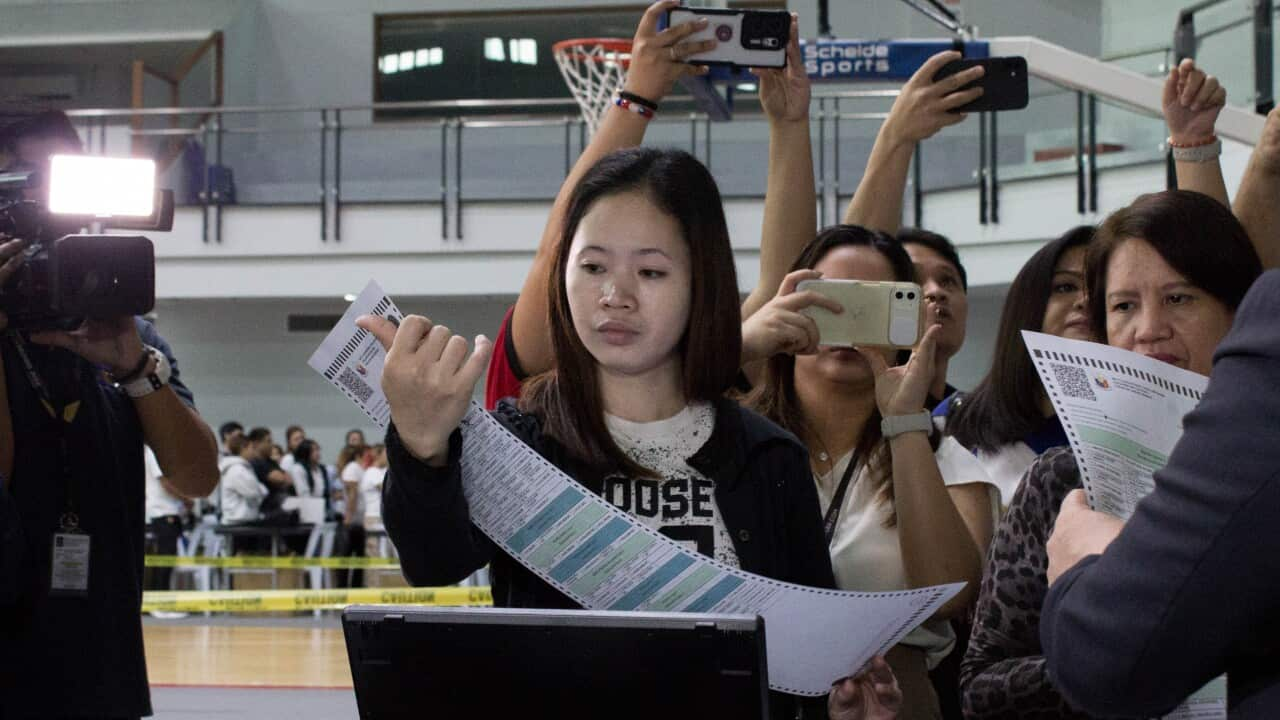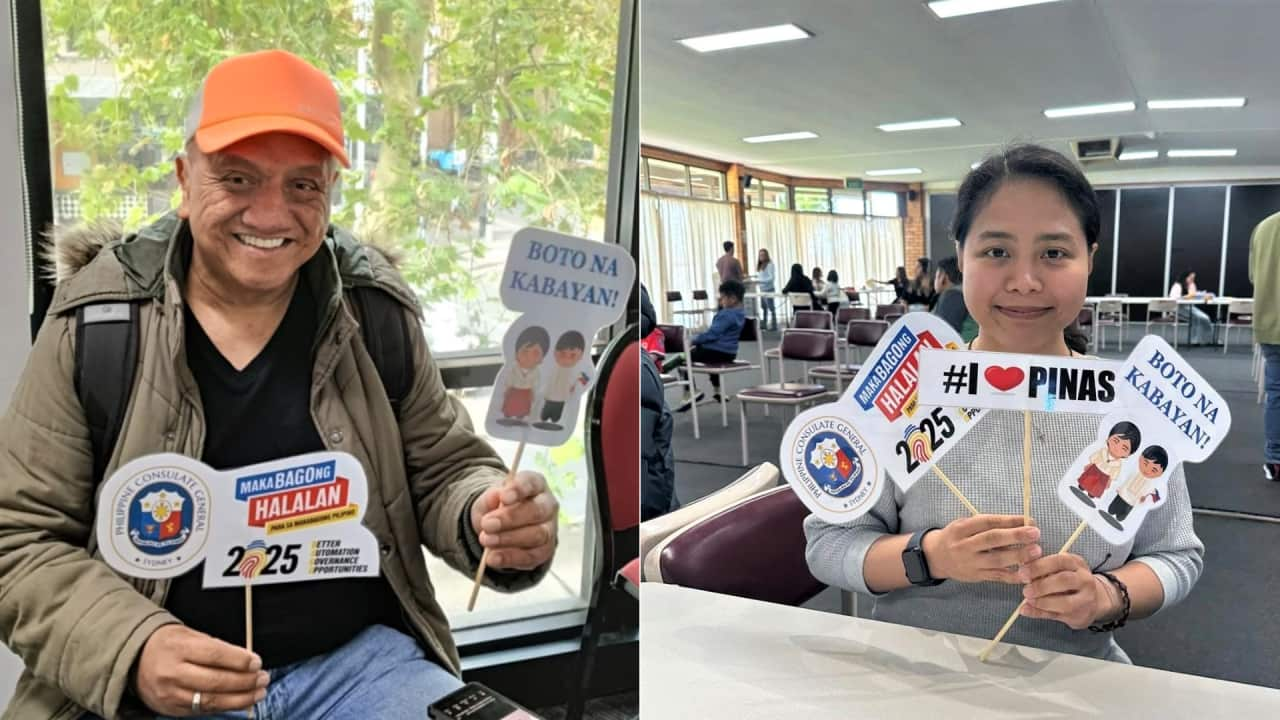Key Points
- The Philippines will head to the polls on May 12, with nearly 20,000 Filipinos in Australia registered to vote.
- Former President Rodrigo Duterte’s arrest on an International Criminal Court warrant hangs over the election.
- An expert predicts political dynasties and parties will persist.
Eighty-year-old Mario (no surname provided) has been voting in the Philippine elections since he was granted dual citizenship in the early 2000s.
"I'm still a Filipino. That's not going to change. If things get better in the Philippines ... who knows? I can always go back," he said.
Mario is one of around 90,000 Filipinos living in Australia and one of over 80,000 Filipino-Australians born in the Philippines.
As of December 2024, a little over 19,000 Filipinos in Australia had registered to vote in this year's Philippine midterm elections.
What is the election about, and who is running?
Filipinos will head to the polls on May 12 to determine who takes all 317 seats in the House of Representatives, 12 of the 24 seats in the Senate, and the executive and legislative branches on the local level.
More than shaping the country's political landscape leading up to the 2028 presidential elections, the results of this year's midterms will reflect how celebrity and name recognition continue to influence choices and where dynastic loyalties lie.
According to private polling firm OCTA Research, Senator Bong Go, who previously served as Special Assistant to the President and Head of the Presidential Management Staff during President Rodrigo Duterte's administration, tops the list of senatorial candidates.

Workers put up posters of senatorial candidates ahead of the 2025 Philippine midterm elections. Source: Anadolu / Anadolu/Anadolu via Getty Images
Statistically tied with Go is House representative Erwin Tulfo, a prominent news anchor and journalist.
The so-called 'Magic 12' includes former senator and TV personality Vicente “Tito” Sotto III; Senator Ronald “Bato” dela Rosa, who served as chief of the Philippine National Police (PNP) during the Duterte administration; Ben Tulfo, TV personality and brother to Erwin Tulfo; and Senator Ramon “Bong” Revilla, a former action star and celebrity.
A tale of two political dynasties
According to Professor Cleo Anne Calimbahin, Senior Research Fellow of the ANU Philippines Institute, Duterte's arrest and the ongoing feud between President Ferdinand "Bongbong" Marcos Jr and Vice President Sara Duterte, the former president's daughter, will have an effect on this year's midterms.

Once from the same party, Vice President Sara Duterte and President Ferdinand Marcos Jr had a falling out and are now fierce political rivals.
Calimbahin also said that political dynasties and parties will persist and are likely to lend their support toward either Marcos or the Dutertes.
"We're not optimistic that the anti-dynasty bill will pass because of those who are supposed to decide on it.
"Their machinery has been effective, for let's say 30 years. It's worked for them. They also have a personal relationship with their constituents. They become sponsors in weddings, become godparents to their constituents' children. That's how loyalties are solidified."
A connection
For at least one Filipino in Australia, the desire to vote had to do with the connection he continues to feel for the Philippines.
"For those of us abroad, whatever happens in the Philippines doesn't affect us, but it will affect our family who still live there. They will be directly affected by the results of this election. That's my main concern," Perth resident and recent voter Esminio Rivera said.
Rivera, who has voted online, said he didn't encounter any issues with the recently rolled out system.
"I just typed in my personal details and took a photo of the front page of my passport, and took a selfie. It was easy," he said.
Some voters, however, had difficulty accessing the system — such as senior citizens who were unfamiliar with digital tools and voters with device issues.
One such voter was Rod Dingle, who has been living in Australia for 40 years.
Despite the difficulty, Dingle was determined to vote in-person at the Philippine consulate in Sydney.
"As a Filipino, you'll always be a Filipino no matter what citizenship you acquire later on. I don't know if this applies to all Filipinos ... but I wanted to still be part of the electoral process," he said.
"I'm trying not to be controversial and say who I voted for, but I have delivered my vote and I stand by it."


